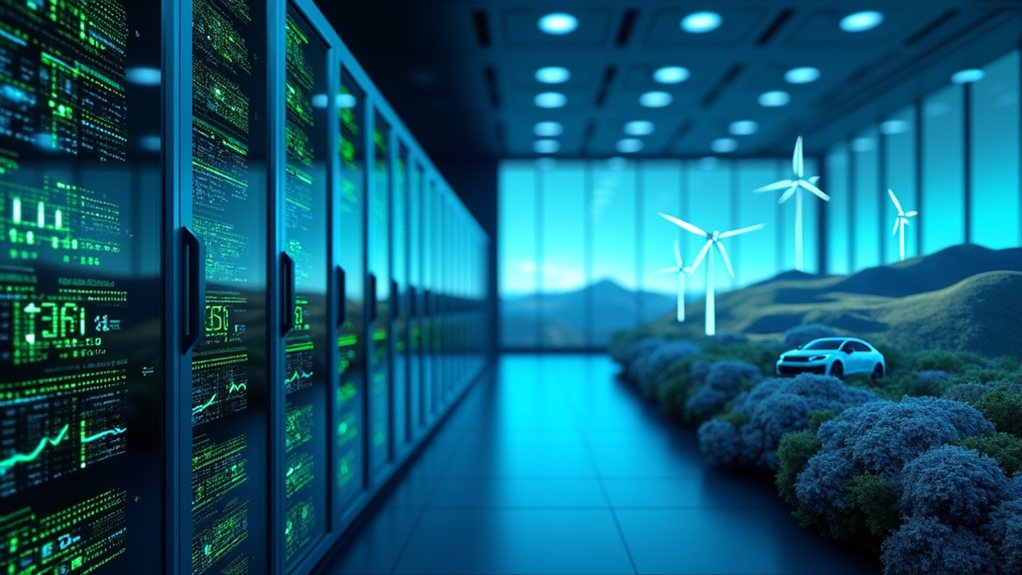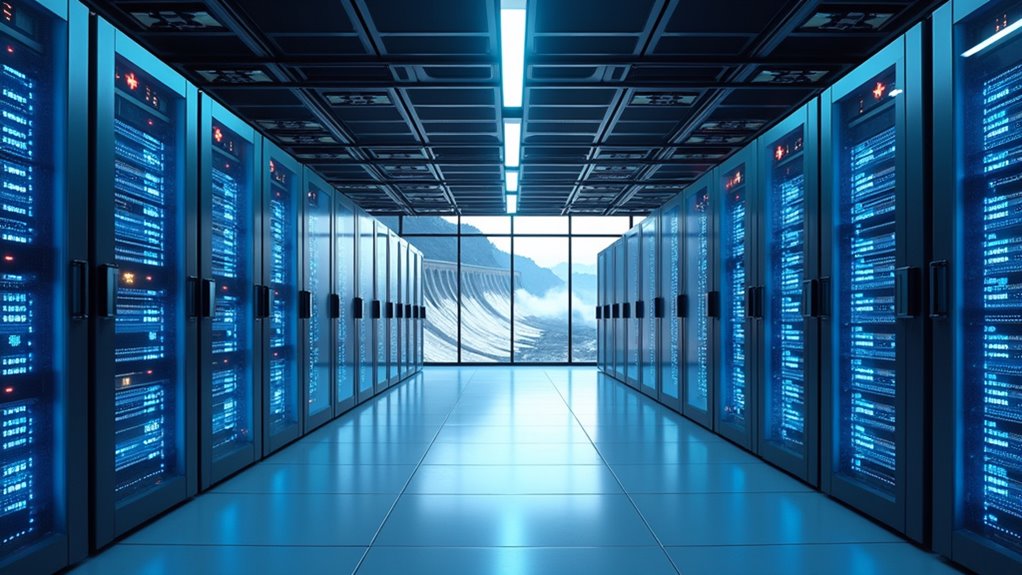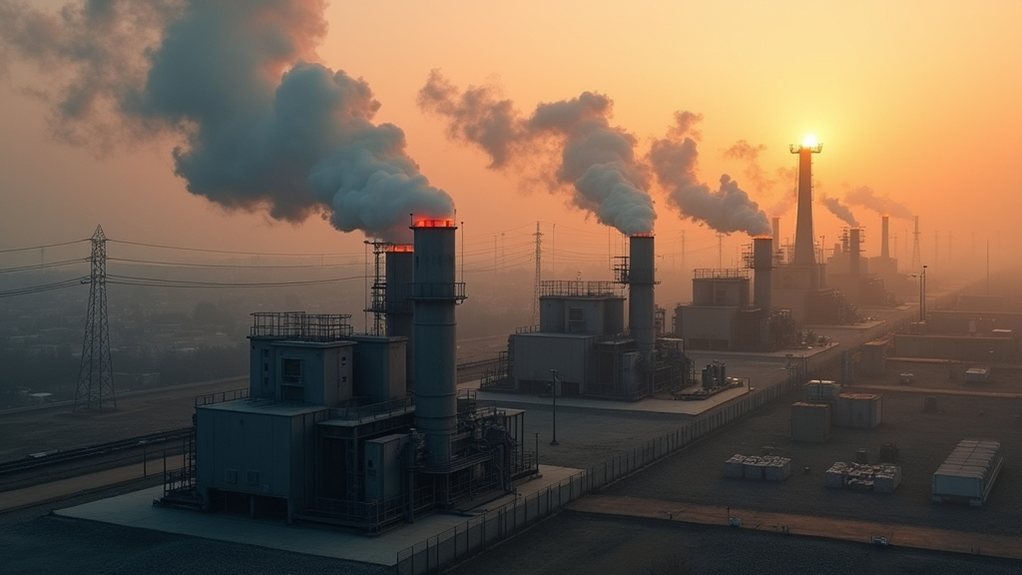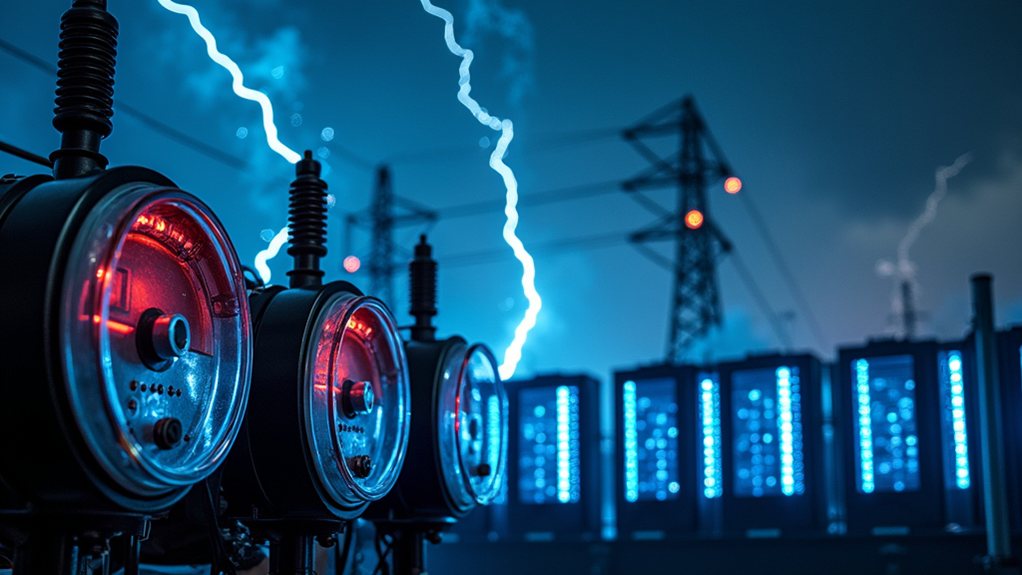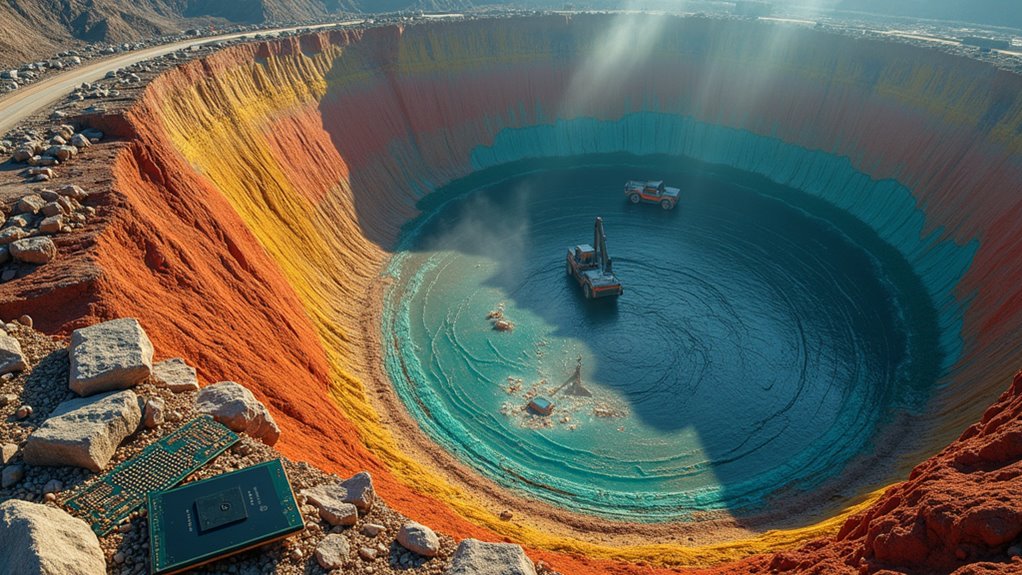AI systems could slash global emissions by a staggering 5.4 billion metric tons annually—that’s like erasing the EU’s carbon footprint twice over. The revolution targets major culprits: energy production (1.8 billion tonnes), transportation (0.6 billion tonnes), and food systems (3 billion tonnes). Sure, AI’s energy-hungry data centers pose challenges, but the climate benefits vastly outweigh the costs. Peek behind the algorithm curtain to discover how smart tech might just save our planet.
While climate change continues to threaten our planet, a surprising hero has emerged in the battle against greenhouse gases: artificial intelligence. Turns out the same technology that suggests those weirdly specific Netflix shows might actually save us a few degrees of global warming.
According to recent research by the London School of Economics and Systemiq, AI could slash global emissions by a whopping 5.4 billion metric tons annually. That’s like erasing the carbon footprint of the entire European Union—twice. Not too shabby for a bunch of algorithms, right?
AI could slash emissions by 5.4 billion tons yearly—like wiping out the EU’s carbon footprint twice over.
The climate-saving potential focuses on three major emission sources: power generation, transportation, and that juicy burger you’re thinking about ordering.
In the energy sector alone, AI could cut approximately 1.8 billion tonnes of CO2 by optimizing renewable energy systems and creating smarter grids. Imagine power plants that predict exactly when you’ll crank up your air conditioning during summer heat waves. AI can accurately forecast supply and demand fluctuations to ensure better energy grid management and efficiency.
Transportation gets a notable boost too, with AI improving electric vehicle batteries and optimizing ride-sharing services. Those 0.6 billion tonnes of potential savings might not sound like much, but it adds up—like counting calories, except it actually works. AI-powered traffic optimization systems in urban areas can significantly reduce emissions by preventing congestion and improving flow.
Perhaps most surprising is AI’s role in our food system. By accelerating the development of alternative proteins (yes, those plant-based burgers that *almost* taste like meat), AI could help reduce emissions by about 3 billion tonnes annually. That’s assuming we can convince half the population to occasionally swap their steaks for something grown in a lab.
Of course, there’s a catch—isn’t there always? AI systems themselves are energy-hungry beasts, with data centers projected to double their electricity consumption by 2030. This technology isn’t just a minor improvement but represents a transformative potential for building a truly sustainable economy.
Governments will need to regulate these digital gas-guzzlers, pushing for renewable-powered data centers and more efficient algorithms.
The bottom line? AI’s potential climate benefits considerably outweigh its carbon costs. In the race against climate change, we might just have found our technological equivalent of Usain Bolt.
